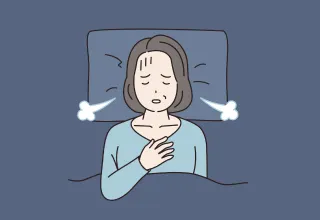Hypopnea is a type of breathing disorder that occurs during sleep. It is characterized by shallow or intermittent breathing, which can last for at least 10 seconds and can cause a decrease in oxygen saturation in the blood. This can cause the brain to briefly wake up to stimulate deeper breathing.
Common causes of hypopnea include
① Obstructive sleep apnea (OSA).
A condition in which breathing stops during sleep because the airway collapses or becomes blocked.
② Neurological conditions
Neurological conditions, such as Parkinson's disease or stroke, that can affect the muscles used for breathing.
③ Obesity
Excess weight puts pressure on your airway, making you more likely to collapse during sleep.
④ Alcohol or sedative use
These substances can relax the muscles in your airway, increasing the likelihood of obstructive apnea during sleep.
⑤ Nasal congestion
Allergies, colds, or congestion can make it harder to breathe through your nose.
Hypopnea can lead to poor sleep quality, daytime sleepiness, and an increased risk of other health problems, such as high blood pressure, heart disease, and stroke. If you suspect you have hypopnea or any other sleep-related breathing disorder, it's important to talk to your doctor or sleep specialist.
